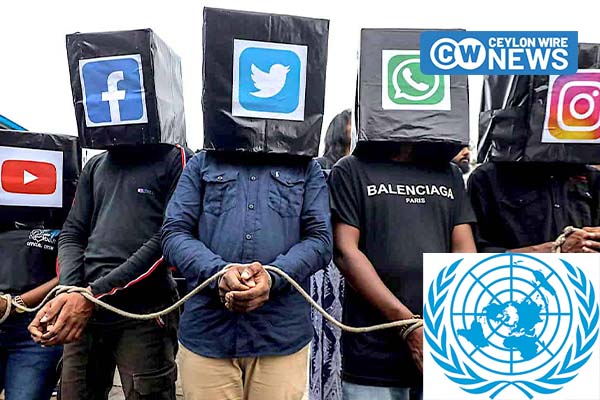United Nations Special Rapporteurs, including Irene Khan on the promotion and protection of the right to freedom of opinion and expression, Clement Nyaletsossi Voule on the rights to freedom of peaceful assembly and of association, and Ana Brian Nougrères on the right to privacy, have voiced apprehensions regarding the proposed Online Safety Act and Broadcasting Regulatory Commission Act in Sri Lanka.
Expressing their concerns in a statement addressed to the Sri Lankan government, the Special Rapporteurs emphasized that the proposed legislation fails to meet the requirements set by international law and standards. They specifically pointed out potential violations of the rights to privacy, freedom of opinion and expression, and freedom of peaceful assembly and of association, as safeguarded by the Universal Declaration of Human Rights (UDHR) and the International Covenant on Civil and Political Rights (ICCPR), which Sri Lanka is a party to.
Regarding the Online Safety Act, the Special Rapporteurs highlighted that numerous provisions seem vague and overly broad, potentially falling short of the ICCPR requirements. They cautioned that the proposed law could significantly restrict online expression, posing substantial barriers and threats to individuals, particularly journalists, human rights defenders, and civil society organizations critical of the government.
Addressing the Broadcasting Regulatory Commission Act, the Special Rapporteurs expressed concern about the appointment process, suggesting that if implemented unchanged, it could grant the executive the power to penalize or deny licenses to media outlets with unfavorable views of the government. They underscored the importance of establishing an autonomous oversight mechanism, free from external pressures or political influence.
Emphasizing the significance of protecting freedom of expression, the Special Rapporteurs stated that international standards mandate states to uphold media freedom. They stressed the obligation of states to avoid indirect forms of censorship, such as controlling newsprint, radio frequencies, or media infrastructure, and called for the independence of bodies regulating the media.
In conclusion, the Special Rapporteurs urged the Sri Lankan government to withdraw the proposed legislation, engage in public consultation, and conduct a substantive review of key aspects of both the Online Safety Act and the Broadcasting Regulatory Commission Act.









